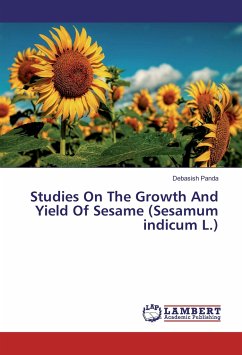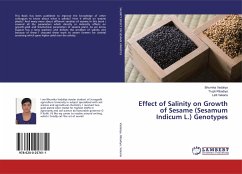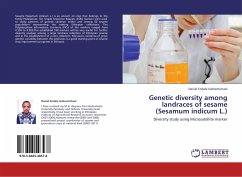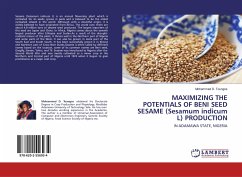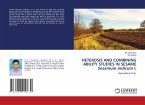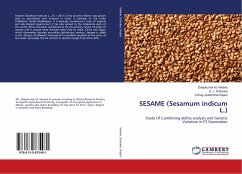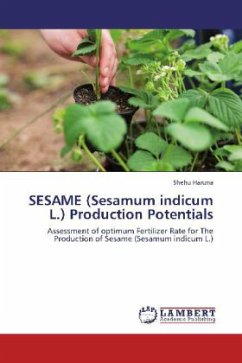Sesame (Sesamum indicum L.) is one of the important oil seed crops. It is mainly cultivated as a pre-kharif crop in West Bengal and other parts of India. Yield of sesame vary in different years due to poor soil moisture availability and rainfall condition, climatic aberrations, disease and pest attack as well as the location of cultivation. Moisture stress during cropping season is one of the major causes for lower yield of sesame. Proper pre-sowing treatment with suitable growth regulators and agrochemicals can improve plant population and productivity of the crop. Application of growth regulators are a promising avenue for improving germination, seedling vigour, growth and yield of the crop under stress a well as normal condition. The present investigation has been undertaken to study the effect of moisture stress and pre-sowing treatment of some growth regulators and agrochemicals on the growth and yield of sesame.
Bitte wählen Sie Ihr Anliegen aus.
Rechnungen
Retourenschein anfordern
Bestellstatus
Storno

